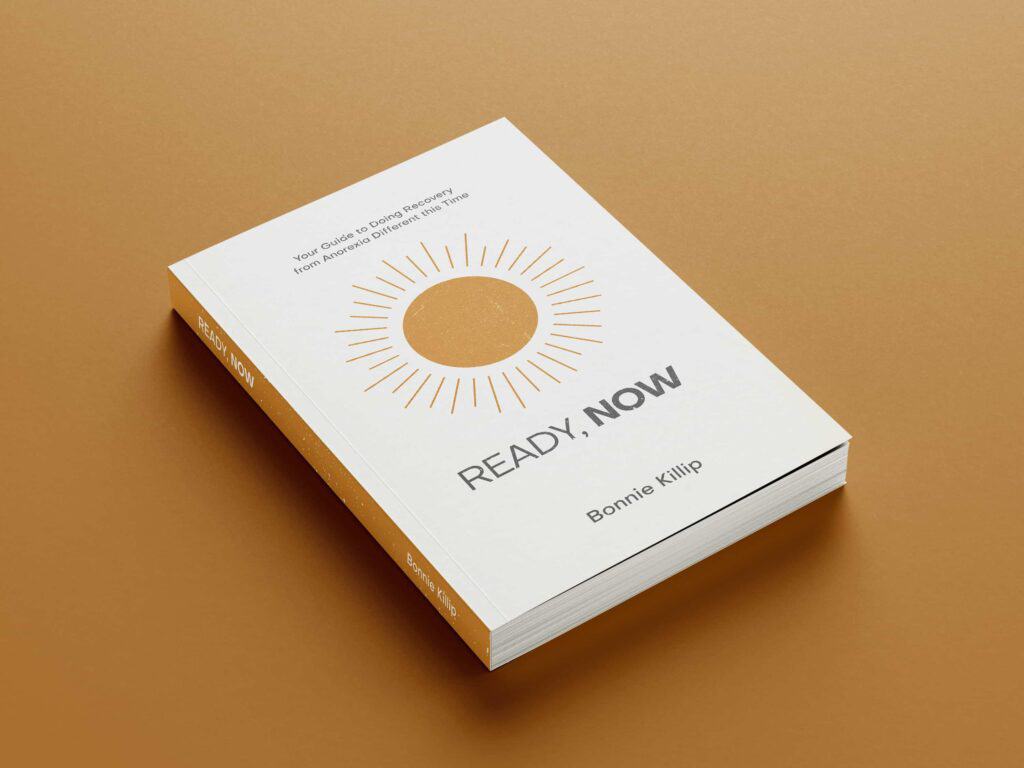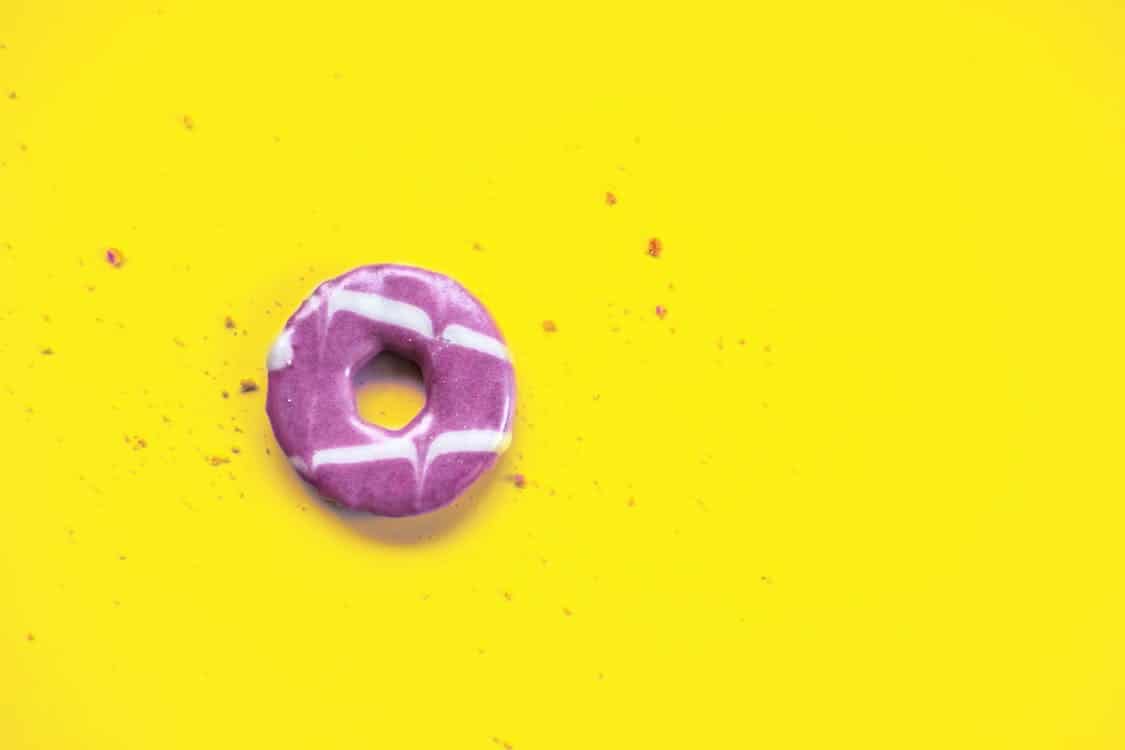I could end this whole blog in three words – it isn’t true.
That feeling that tells you “Not yet”. “Soon but just not now”. It isn’t accurate.
You’ve probably heard the phrase “feelings aren’t facts” and perhaps nowhere is this more true than when it comes to eating disorder recovery.
Across the board there seems to be a feeling within people who want to recover from an eating disorder, a sense that they could recover when they truly want to. That they are almost ready. That they just need to be a little more fed up, a little sicker and so on before they suddenly “snap out of it”.
I know because not only did I experience that feeling during the years I lived with an eating disorder I’ve also heard some version of it from every person I’ve worked with in recovery from an eating disorder.
The thing is what I also experienced during my own recovery and what the people I work with also share they experience is that this doesn’t actually happen.
I’m yet to meet someone who’s recovered from an eating disorder who reaches a point where the eating disorders says “you are ready” and you step into an eating disorder free life does not exist.
It would be nice. It would be ideal. It would make it all a hell of a lot more doable. All this is undeniable but it’s just not a reality.
What Does It Really Take to Recover?

The truth is no matter how much the eating disorder is hurting you physically and mentally and no matter how much you want it to end there will be no point where it magically goes away.
The truth is the only thing that allows for the eating disorder to be removed from your life is for you to remove it.
The truth is the only way people recover from eating disorders is they choose to learn how to recover, they choose to take the steps that are highly likely to get them to recovered and they do it all even when they don’t believe it is going to succeed. In other words, yes, you do need to recognizing you have a problem and you do need to decide that you want to change this problem these steps are crucial but and this is a big but because it is where most of the work is done you do have to also make a plan AND you follow that plan (and perhaps the hardest part of following that plan is that while you’re doing so you’re also unlikely to fully believe you will succeed).
What you must remember is that no one living with an eating disorder wants to be living with an eating disorder.
If people could choose a click of the fingers and wake up in a recovered life they enjoyed and felt comfortable within themselves 120% of people living with an eating disorder would choose that option. Unfortunately, this is not an option. Recovery takes consistent action on a plan that is likely to give you the outcome.
There are a few true reasons why people don’t recover from an eating disorder and I think the main one is that they can’t imagine that recovery is possible in terms of believing they could ever truly feel comfortable within themselves. They don’t really have a clear plan to recover (aka they’re throwing spaghetti at the wall and seeing what sticks), or they have a plan made by someone else and they don’t really believe that this plan will allow them to reach recovered. So, why follow that plan if you don’t believe it’s going to get you where you want to be? Exactly, you won’t. So, you’ve either got to make yourself a plan that you believe in or you have to follow a plan that is devised by people you trust, people who’ve been there and done that or people who have a lot of knowledge in this area (preferably all of the above).
Because truly if you want to make eating disorder recovery as simplified as possible there are just two components you must focus on:
One: A Plan
Recovery takes more than a decision to recover. It takes a plan.
It was about fifteen years before I had a solid plan to recover. A plan I believed in and a plan I acted upon even when it felt impossible. A plan where I felt like I was moving forward and making changes.
A plan should include a meal plan and it also should include a personalized psychological intervention to facilitate you to overcome, develop and empower yourself as a whole (imperfect) human being moving into a life free from an eating disorder.
Two: Action
Evidently no matter how good your plan if you don’t take consistent action upon it you will not reach the outcome.
Action is the truly tricky step because as I said before there often is a sense of “not yet”. Another common thing people feel is that whatever they do is “not enough” and therefore they hold themselves back from doing the small actions.
Please believe me when I say doing even the smallest of things different even when you don’t feel it’s important or impactful enough is always worth it. It trains your mind that you can do things, that you are in control of your life and evidently the more you build your ability to make choices and follow through with them the more empowered and confident you are going to become in your life. Which sounds a whole lot like recovered to me.
Because remember the whole point of going through “recovery” is to go THROUGH recovery. It is to “recover”.
The whole point of doing the hard stuff while it’s hard is a payoff down the track where your life is incomparably better. Recovery isn’t for present you, it’s for future you.
Summary

If you are waiting for the right time to recover or to feel ready to recover or to be just a little more sick or fed up with the eating disorder or you’re just going to put it off a little longer before you recover and you feel you are so close to this please know that you will be waiting a lifetime.
The feeling that this (insert anything here) is what needs to happen before you recover is a lie.
I cannot say why it is that this is a feeling that people living with eating disorders feel. If I had to take a guess, I think it would be just a trick our brain plays on us that allows us to put off the hard and unknown path of recovery and stay in the familiar (yes, even if for the most part that familiar sucks). Our brains are always trying to conserve energy and staying in the familiar takes a whole lot less energy than challenging and changing.
The truth is if you want to recover from an eating disorder and live a life on the other side that takes planning, and it takes following the plan.
The truth is recovery from an eating disorder doesn’t happen by magic, with time or when you “grow out of it” (as I’ve heard people hope it might).
In any case I encourage you not to leave your health and your life to hope. And instead become clear and intentional on a plan and move forward in a new way.
Because if I am truly honest with you this empowerment or taking a proactive role in my own life was not just a necessity of my ability to recover from fifteen years of being consumed by anorexia but it is a skill that was and is absolutely necessary for me to live my life beyond an eating disorder. It is internal freedom.
Which is of course the goal of recovery, not just to recover for the sake of recovering but to live your life free to be you.
Don’t waste any more time trying to gain more information or more readiness to recover. Don’t waste any more time waiting for that feeling of “soon but not yet” to change (it won’t). Take action and in the words of perhaps one of the greatest clinical hypnotherapists there’s ever been “change will lead to insight far more often then insight will lead to change”
With my whole heart I hope you found this information valuable.

Become Great. Live Great.
Bonnie.



